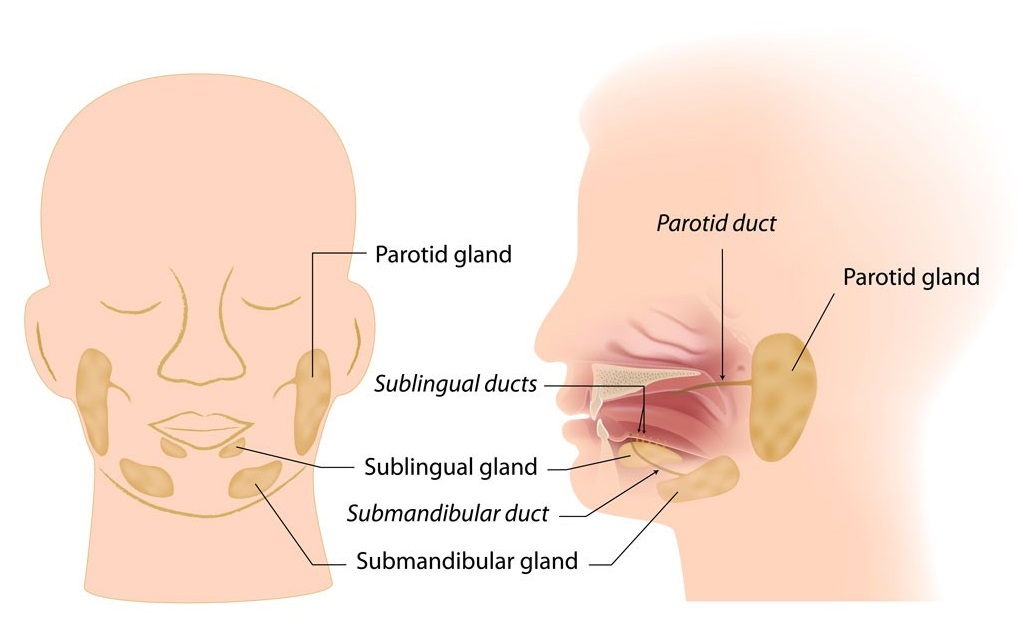
Salivary Gland Surgery
Our salivary glands generate an essential lubricant that assists in swallowing, digesting, and protecting teeth and gums from infection. Sublingual, submandibular, and parotid glands are the three primary glands, each with hundreds of tiny glands or ducts.
It is a sophisticated system that, when not functioning properly, can cause severe symptoms such as swelling or redness inside or outside the mouth, a dry or sore mouth, poor taste or unwanted pus, and discomfort when eating. Relatively benign growths, infections, cysts, or salivary gland stones are rather prevalent and require therapy to restore normal function.
Salivary gland swelling can be caused by viral diseases such as mumps or the flu, as well as Epstein-Barr virus (EBV) and cytomegalovirus (CMV). Autoimmune disorders like Sjögren’s syndrome might also be a causal factor. A mixture of symptomatic analysis and testing, as well as scans, can help with diagnosis. It is worth mentioning that bacterial infections can be caused by clogged salivary ducts.
The most common issue is salivary stones (sialoliths) that block salivary glands. A buildup of crystallized saliva deposits causes swelling and/or infection until the obstruction is removed. Cysts or growths like pleomorphic adenomas and Warthin’s tumors are rather prevalent.
A variety of issues can affect or restrict the function of our salivary glands and that’s why we make sure you consult a skilled maxillofacial expert. They can usually recognize slight symptom changes to assist in determining the causal factor and have the skills necessary to work through a wide range of causes.
They will also go over your medical records and condition, as well as how you feel and lifestyle factors. Dehydration and food habits can have an impact on salivary glands and how they respond to bacterial infections.
Treatment is, of course, dependent on the diagnosis. A rare and severe condition, such as salivary gland cancer, may necessitate surgery and radiotherapy, but a mild infection may only necessitate medication.
Patients are commonly directed to our clinic for specialized surgery after the underlying problems are discovered. It is also true that surgical intervention could be the answer in a variety of cases.
Breaking down or manually removing the stones, or similar blockages will be required. Surgery is once again a solution to remove cysts or other growths.
While nonsurgical solutions could be effective, we aim to ensure a long-term cure, avoid recurrence, and ensure a normal return to life. Surgery is not too complicated, requiring only a local anesthetic in some situations and a night’s stay in others.
